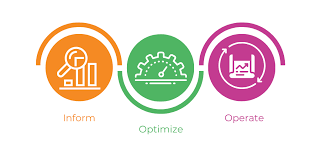FinOps, short for "Financial Operations," is a set of practices and frameworks that help organizations manage and optimize cloud spending. With the rise of cloud computing, companies face new financial challenges, as cloud resources are billed on a pay-as-you-go basis. FinOps combines finance, engineering, and operations teams to promote accountability, visibility, and real-time decision-making around cloud spending.
Key Principles of FinOps
- Collaboration Across Teams: FinOps encourages cross-functional collaboration, bringing together finance, engineering, and operations.
- Visibility and Transparency: FinOps tools and practices help track cloud usage and spending, often in real time, to maintain clear visibility into cost allocation.
- Accountability and Ownership: Each team or department is accountable for its cloud spending, creating a culture where cost control is a shared responsibility.
- Optimization and Efficiency: FinOps emphasizes continual cost optimization by identifying savings opportunities, such as rightsizing, reserved instances, or spot instances.
- Governance and Compliance: This involves setting up policies and controls to manage usage, budget, and avoid overspending.
Core FinOps Lifecycle
- Inform: Collect and analyze data to provide insights into cloud spending.
- Optimize: Implement cost-saving measures based on insights, such as right-sizing resources or switching to more cost-effective pricing models.
- Operate: Regularly review, report, and adjust spending in alignment with organizational goals and changes.
Tools and Technologies
FinOps tools often include cloud cost management platforms like AWS Cost Explorer, Google Cloud Billing, or third-party tools like CloudHealth, Cloudability, and Apptio. These platforms offer granular tracking, reporting, and optimization features.
Why FinOps is Important
FinOps helps organizations align cloud costs with business goals, ensuring that spending on cloud resources is efficient and strategic. As cloud adoption grows, a robust FinOps practice can significantly impact a company's bottom line by controlling unnecessary spending and improving cloud utilization.
